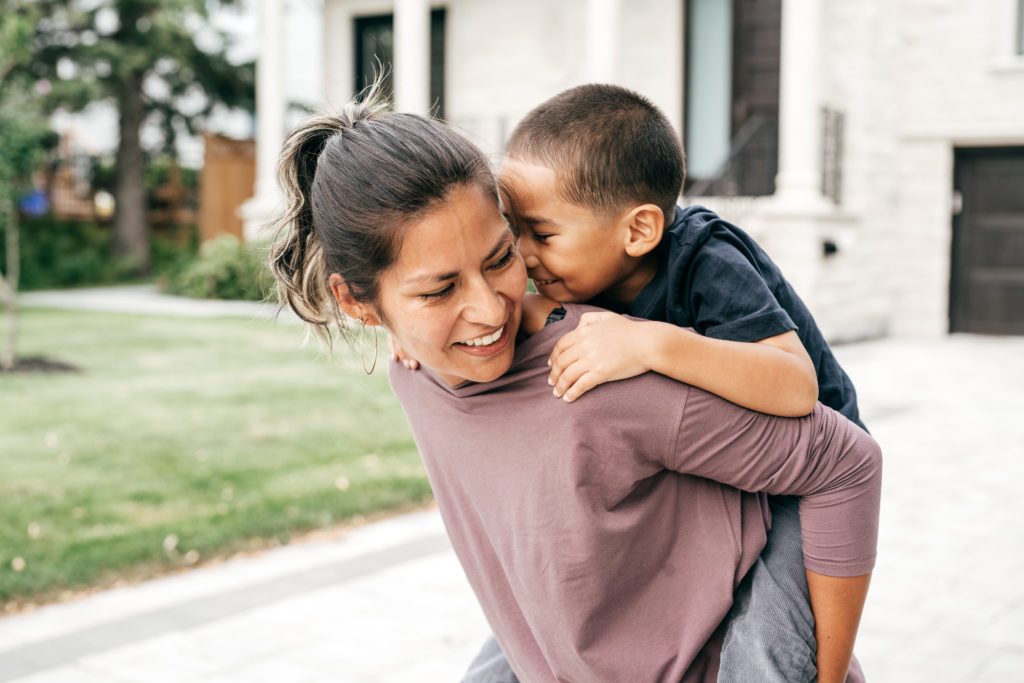July 15, 2020
Talking with Children About Mental Health
We are diligent in teaching children good habits for physical health, such as healthy eating, getting enough sleep, and practicing good hygiene. Why don’t we put equal emphasis on teaching children how to care for their mental health?
Mental health challenges in children and young adults is more prevalent than you may think. According to the CDC, 7.1 percent of children aged three to 17 (approximately 4.4 million) have diagnosed anxiety, while 3.2 percent of children aged three to 17 (approximately 1.9 million) have diagnosed depression. Sadly, many of these children and young adults are struggling in silence.
A very powerful way to support your child and family through these challenges is to help them understand mental health. However, many parents and caregivers find it difficult to talk about mental health – it can be daunting to know what to say or where to start.
Talking openly about mental health creates the opportunity to reduce stigma, encourage open, positive dialogue, and empower children and young people. There’s no right way to talk about mental health, but having a plan and some strategies in mind can help make the process less overwhelming and more effective.
Model openness and honesty.
Children, especially when young, will model the behaviors parental figures demonstrate. By being consistently open about the importance of mental health, you can lead by example. Share your feelings, challenges, successes, and failures with your child in a way that is age-appropriate. By doing so, you’ll demonstrate to them that it’s safe to talk about their own feelings and struggles.
Meet them where they are.
Discussions around mental health will be different for every child. Pick a time that won’t feel rushed or forced in a location where they’re comfortable, and ensure there aren’t any distractions that might take away from your conversation. Additionally, when speaking to your child or adolescent about mental illness, keep in mind their age and developmental level. Use age-appropriate language, and don’t overwhelm young children with statistics and definitions.
Acknowledge the link between physical and mental health.
We know that mental and physical health are inextricably linked – your mental health affects your physical health, and vice versa. Given this fact, it’s important to teach children and young adults the value of looking at health holistically. Encouraging good physical health habits, including healthy eating, regular physical exercise, and routine primary care checkups, will also promote their mental health and help create good self-care habits.
Watch for signs of a mental health challenge.
It’s important as a parent or caregiver to be aware of when your child might be experiencing a mental health challenge. You can look out for the following warning signs:
- Restlessness and agitation
- Acting out
- Lack of enthusiasm, energy or motivation
- Forgetfulness and lack of concentration
- Withdrawing from friends and activities
- Dropping grades or frequent school absences
- Changes in eating or sleeping patterns
- Frequent headaches and body aches
- Substance abuse
- Self-harm
To learn more about the signs and symptoms of mental illness in children and young adults, as well as how you can quickly and effectively intervene in a crisis, you can sign up to participate in a Youth Mental Health First Aid course.
Work to reduce stigma.
There are many misconceptions about mental illness, and this stigma causes people to feel ashamed for something that is out of their control. Worst of all, stigma prevents people from seeking the help they need. Commit to fighting stigma in your own family by talking openly and honestly about mental health, and educating yourself and your children.
Seek professional help when appropriate.
In general, if a child’s behavior persists for a few weeks or longer, causes distress for the child or the child’s family, and interferes with functioning at school, at home, or with friends, then consider seeking professional help. If you think that your child could benefit from talking with a professional, be assured that it’s never too soon to do so. Children should understand that treatment for mental illnesses is effective, and they will not be judged for seeking help.
Especially now as we face a global pandemic and families are encountering many new challenges, Cascadia is here to help navigate emotional or behavioral health concerns. To learn more about the services Cascadia offers to children and families, we encourage you to call (503) 674-7777, Monday-Friday from 10 AM – 5 PM.

